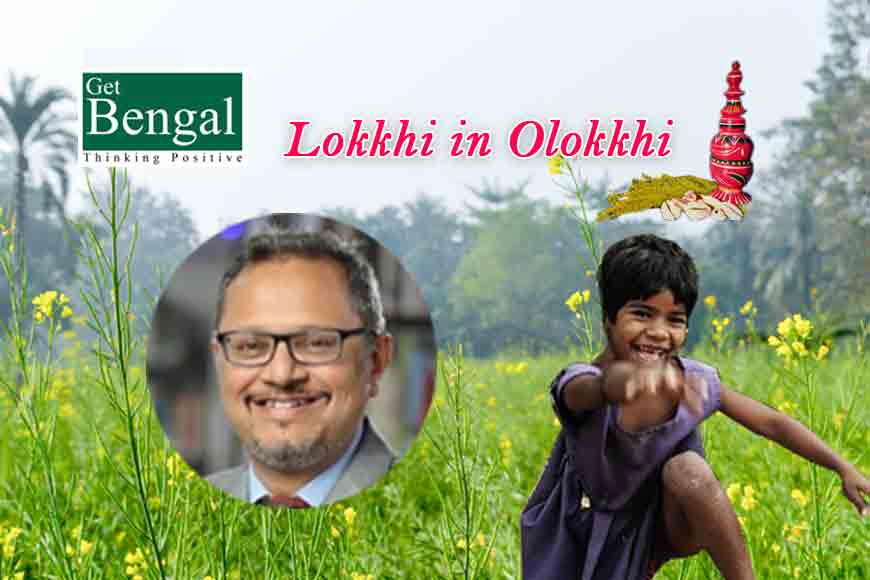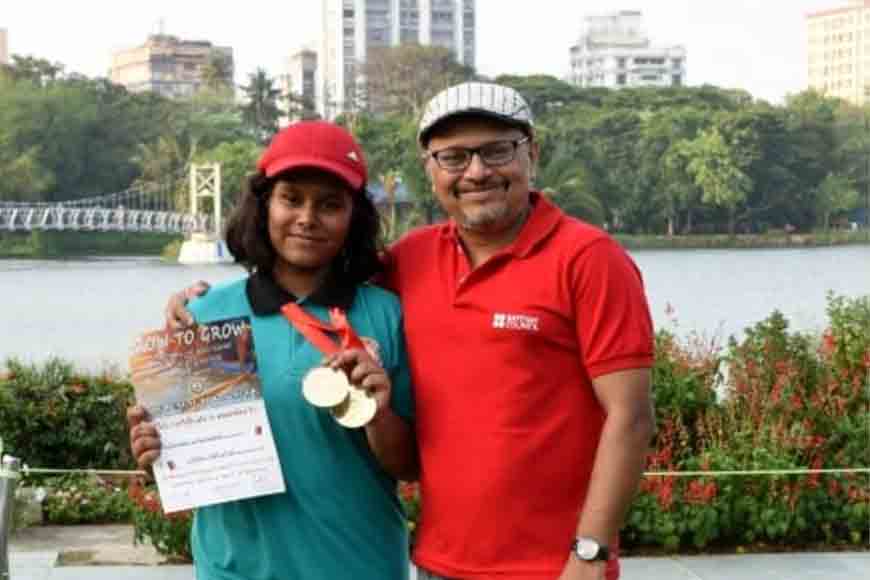GB ‘Lokkhi in Olokhhi’ – DR DEBANJAN CHAKRABARTI

Ishwar Chandra Vidyasagar’s Bornoporichoy laid the foundations of my Bangla, just as it had been doing for the last few generations for most Bengalis. However, contrary to the expectations of the great Bengali educationist and social reformer, I was instantly attracted to the likes of Rakhal rather than Gopal, the subodh balok, the type of the “good boy”, in the primer. Vidyasagar’s refrain throughout both parts of Bornoporichoy is that “good boys” – and they are indeed all boys - study diligently, obey their parents, teachers and other sundry elders, complete their tasks on time, are never distracted by sports or life outside the classroom and textbooks in general. I had nothing against Gopal and his tribe. It was just that I wasn’t him. Sports, the life outside the classroom, books apart from set texts mattered much more to me.

Decades later, I look at our 14-year-old daughter and take some satisfaction in that she similarly bucks the expectations of being a “lokkhi meye,” the proverbial good girl. Her passion for sports, in particular rowing and swimming, defines her. She is restless; curious, but in a non-academic way, and like most digital natives, spends way too much time on her devices exploring the world in her own way, dreaming of being a “YouTuber” (“Is that even a thing?” we have asked her and ourselves, as digital migrant parents.) By all verifiable accounts she is the class joker and in a bit of demand as a stand-up comic. Her goofiness has us in splits often as she tries her new material on us at home.
“Obedience” – in the traditional sense of the word - is not in her dictionary, and we love her for that. She challenges every parental diktat we want to foist on her, questions the rationale of every routine we try to nudge her towards. Observance of rituals of childhood and more importantly, girlhood, is not her thing. Very recently, she and I spoke about how top sportswomen cope with menstruation while training and competing at the highest levels of their chosen sports. She loves sniffing at and occasionally dipping her finger into my single malts. At one level there is nothing demure or girly about this motor-car loving petrol head teenager. Yet she spends a lot of time learning new hacks on make-up and fashion, often advising me on how to pair my suits with the right ties and pocket squares.
There is an overriding expectation in urban middle-class Bengali families for their children to be “good.” But these expectations are different for boys and girls, subtly if not egregiously so. The Bengali band Chandrabindoo’s lyrics “Doodh na kheley hobey na bhalo chheley” (You are not a good boy as long as you don’t drink up your milk) takes a dig at this idea of being the good boy. At a more serious level, Amartya Sen looks at the wider implication of our gender-biased expectation of boys securing first position in school exams in the titular essay of his book, The Country of First Boys
 .
.
While the term “lokkhi” and “bhalo” can sometimes be interchangeably used in case of boys, there is a gendered idea underlying those terms. “Lokkhi” often denotes well-mannered or well-spoken girls. Sometimes it means just sitting tight, calmly, properly, doing very little, thinking even less. Happily, none of these attributes of “lokkhi” sits well with my teen daughter. She knows the contexts in which she is expected to conform but she refuses to be forced into those observances. After years of refusing to bend down and touch the feet of elders in pronaam, she surprised us this Bijoya Dashami by touching the feet of her grandparents. We are proud that she did not kowtow to our diktat earlier but embraced the ritual on her own, when we had given up on that expectation.
On the occasion of Lokkhi Pujo, my wife and I feel very fortunate to be blessed by the goddess with a child who does not conform to the image of the “lokkhi meye.”









